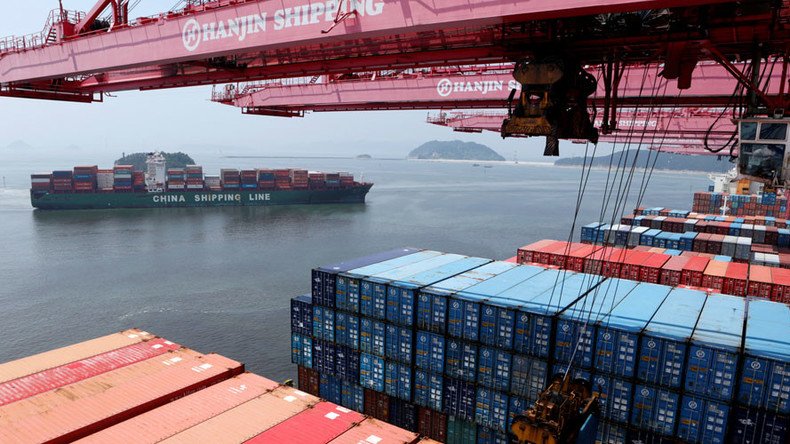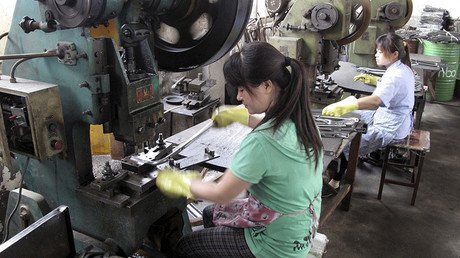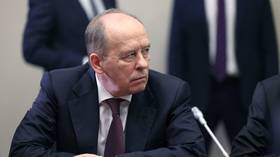Chinese August imports up for first time since 2014

Imports into China unexpectedly rose in August for the first time in nearly two years, and the fall in exports abated, signaling a possible trade recovery in the world’s second-largest economy.
Imports rose 1.5 percent year-on-year, reversing a 12.5 percent fall in July. Last month’s increase was the first on-year rise in imports in dollar-denominated terms since October 2014.
Exports fell by a less-than-expected 2.8 percent from a year earlier, following July's 4.4 percent drop.
This resulted in a trade surplus of $52.05 billion, slightly below July's $52.31 billion, which was the biggest since January.
"The improvement in imports is mostly a reflection of stronger domestic demand. Chinese companies are restocking, and also are now expecting prices to start rising," Wang Jianhui, an economist at Capital Securities, told Reuters.
"We expect exports to stay stable and imports to improve as higher prices spread to more products,” he added.
Imports were boosted by commodities with the volume of coal jumping over 50 percent. China cut mining of its own coal in favor of buying higher quality supplies from countries such as Australia.
Iron ore imports slipped from July but remained near record highs.
Chinese steel exports are expected to hit a new record this year, with the steel price surge partly as a result of Beijing's efforts to reduce excess capacity.
While demand for Chinese goods seems to be picking up slowly, global demand still remains depressed. The International Monetary Fund’s head Christine Lagarde said earlier this month that the global growth forecast for 2016 may be downgraded again.
The Chinese economy grew 6.7 percent in the second quarter from a year ago. Beijing authorities say they intend to maintain annual growth of at least 6.5 percent over the next five years by creating more jobs and restructuring inefficient industries.














